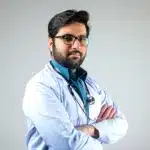The allure of studying medicine abroad has captivated the imaginations of countless aspiring doctors, offering not just an education but a passport to a world brimming with opportunities. From the prestige of world-class medical curricula to the promise of an international career, the journey of overseas medical study is both challenging and rewarding. It is a path that demands dedication and resilience but offers unparalleled professional recognition, cultural enrichment, and the chance to contribute to global healthcare. This article delves into the multifaceted benefits of pursuing medical education overseas and how it serves as a stepping stone to an international career.
Key Takeaways
- Studying medicine abroad provides access to world-class education, advanced healthcare systems, and global professional recognition.
- International medical education is a gateway to personal and professional growth, fostering cross-cultural competence and a diverse professional network.
- Overseas medical graduates often enjoy lucrative career opportunities and financial success, with an impressive return on investment.
- Medical study abroad can lead to significant contributions to global health initiatives and the transfer of knowledge to one’s home country.
- Support systems like educational consultancies, financial aid, and visa guidance are crucial in overcoming challenges and ensuring a smooth transition to studying abroad.
The Pursuit of Quality Education and Professional Recognition

World-Class Medical Curricula
Embarking on a medical degree overseas offers access to world-class curricula that are designed to meet the highest educational standards. These programs are meticulously structured to provide a comprehensive understanding of medical science, integrating both theoretical knowledge and practical skills.
- Global recognition: Graduates from these top-tier institutions are equipped with qualifications that are internationally recognized, particularly by WHO and MCI.
- Advanced research facilities: Students benefit from state-of-the-art research facilities, which are instrumental in fostering innovation and scientific inquiry.
- Hands-on training: A strong emphasis on practical training ensures that students acquire the necessary clinical experience to excel in their future careers.
The pursuit of a medical education abroad is not just an academic endeavor; it is a transformative experience that shapes future healthcare leaders. With a curriculum that is both rigorous and dynamic, students are prepared to meet the challenges of a rapidly evolving medical landscape.
Financial considerations are also a key aspect of studying abroad. While the initial investment may be significant, the long-term return on investment can be substantial, given the enhanced career prospects and earning potential. It is essential for students to evaluate the financial implications and seek guidance on scholarships and financial aid to support their educational journey.
Global Accreditation and Degree Recognition
The pursuit of a medical degree overseas is not just about the education itself, but also about the global recognition it commands. Degrees from accredited institutions are a testament to the quality of education and are essential for international career mobility. Accreditation by bodies such as WHO and MCI ensures that medical qualifications are acknowledged worldwide, opening doors to diverse career opportunities.
- Comparison of MBBS in India and MD in the USA:
- Accreditation: Ensures global acceptance.
- Exams: Necessary for practice in various countries.
- Financial Commitment: Significant but with high ROI potential.
Studying medicine abroad equips students with credentials that are highly valued across the globe. This is particularly important for those aiming to return to their home country to practice, as it facilitates the recognition of their qualifications and smoothens the transition.
The right accreditation not only validates the quality of education but also empowers graduates with the freedom to practice medicine in numerous countries, enhancing their career prospects significantly.
Faculty Excellence and Research Opportunities
The pursuit of an overseas medical degree is not just about the curriculum; it’s about the people who deliver it. Faculty excellence is a cornerstone of top medical schools, where educators are often leading researchers in their fields. These professionals bring the latest medical discoveries and innovations directly into the classroom, providing students with an education that is at the forefront of medical science.
Research opportunities at these institutions are abundant, allowing students to engage in cutting-edge projects that can have a significant impact on global health. From postgraduate research students to senior academics, the academic community works collaboratively to address the major health challenges facing society. This hands-on experience is invaluable for students aspiring to become leaders in the medical field.
The collaborative environment fosters not only academic growth but also professional development, as students learn to navigate the complexities of medical research and its applications.
By participating in these research initiatives, students can make meaningful contributions to the field while building a robust professional profile that stands out in the competitive world of medicine.
Navigating International Exposure and Cultural Enrichment

Adapting to Advanced Healthcare Systems
Studying medicine overseas offers students the unique opportunity to immerse themselves in some of the most advanced healthcare systems in the world. Students gain firsthand experience with cutting-edge technologies and innovative treatment methodologies that may not be available in their home countries. This exposure is crucial for those who aspire to bring this knowledge back to improve healthcare systems locally.
The integration of disciplines such as healthcare analytics exemplifies the interdisciplinary approach to medical education abroad. Students learn to manipulate, analyze, and interpret health data, equipping them with skills to address strategic problems in healthcare.
- Healthcare Analytics: A field combining health sciences, computer science, and more to improve healthcare management.
- Clinical Rotations: Opportunities to work in partner hospitals, gaining practical experience.
- Residency Attainment: High success rates in securing residencies, readying students for the demands of U.S. healthcare.
The journey of adapting to advanced healthcare systems abroad is transformative, fostering not only medical knowledge but also personal growth and resilience.
Overseas medical education involves cultural adaptation, long-term commitment, visa essentials, financial planning, and navigating complex admission procedures for MBBS programs abroad. These challenges are part of the process that molds medical students into world-class healthcare professionals.
Cross-Cultural Competence in Medicine
In the realm of overseas medical study, cross-cultural competence is a cornerstone of a successful international medical career. Medical students who immerse themselves in diverse cultural environments are better equipped to understand and address the nuances of patient care across different societies. This skill set is not only beneficial for individual patient interactions but also enhances collaborative efforts in global health initiatives.
Cross-cultural competence involves more than just language proficiency; it encompasses an understanding of cultural beliefs, values, and practices that influence health behaviors. To foster this competence, medical schools abroad offer:
- Exposure to a diverse patient population
- Training in culturally sensitive communication techniques
- Ethical considerations in a global context
By embracing these educational opportunities, students develop the empathy and adaptability required to navigate the complexities of international healthcare systems.
Moreover, the pursuit of medical education abroad often includes preparation for international licensing exams, such as the USMLE Step 2 CS, which assesses clinical skills within a multicultural framework. Students are encouraged to seek out resources and support systems, like Divine Education Abroad Consultancy, to strategize for high acceptance rates and explore financial aid options, ensuring a smooth transition into their chosen career paths.
Building a Global Professional Network
In the journey of overseas medical study, building a global professional network is a cornerstone for future success. Engaging with peers, faculty, and professionals in the field opens doors to diverse opportunities and collaborative ventures. It’s not just about making acquaintances; it’s about forging meaningful connections that can lead to mentorships, partnerships, and career advancements.
- Seek licensing opportunities outside of Canada
- Gain experience through volunteering and/or observerships
- Participate in professional development programs
- Increase networks with healthcare professionals and communities
- Get involved with health and wellness teams supporting newcomer communities
By actively participating in international medical communities, students can integrate successfully into the workplace and practice, enhancing their employability and professional growth. The Fast Track MD program offers a streamlined approach to this integration, ensuring that students are well-prepared for the challenges of an international medical career. Moreover, securing clinical rotations for MBBS abroad and integrating USMLE strategies for U.S. medical practice are essential steps in this process.
Unlocking Career Opportunities and Financial Success

International Career Pathways in Medicine
Embarking on a medical degree overseas opens up a plethora of international career pathways for graduates. With a globally recognized qualification, physicians can explore opportunities far beyond their home country’s borders. The flexibility to work in various healthcare systems is a significant advantage, allowing for a diverse and enriching professional life.
- Obtain licensure and practice as a physician or specialist in countries like Canada, the USA, or the UK.
- Engage in healthcare roles that may not require a physician’s license, such as research or administration.
- Consider alternative careers in healthcare consultancy, education, or pharmaceuticals.
- Further education and training can lead to specialization or academic careers.
The decision to study medicine abroad is not just about acquiring a degree; it’s a strategic move towards a dynamic and potentially lucrative career on a global stage.
Financial considerations are crucial, as the return on investment can be significant. Graduates often find that the higher income potential in some countries can offset the initial costs of an overseas education. Transitioning from study to practice involves navigating licensing exams, visa requirements, and cultural adjustments, but the rewards of an international medical career are manifold.
Financial Considerations and Return on Investment
When considering overseas medical study, financial considerations play a pivotal role in decision-making. The return on investment (ROI) for medical education abroad can be substantial, particularly when factoring in the potential for higher salaries and advanced career opportunities. However, students must carefully evaluate the initial costs, which include tuition fees, living expenses, and additional costs associated with relocation and travel.
Lower Financial Burden: For many students, especially from countries like India, the allure of studying medicine abroad is often tempered by the financial burden. Yet, in some countries, tuition fees can be significantly lower, making it more affordable. Additionally, living costs vary widely between countries and cities, necessitating thorough budget planning.
Financial aid, such as scholarships and grants, can alleviate some of the financial pressure. It’s crucial for students to actively seek out these opportunities, as many go unclaimed due to lack of awareness or the assumption of ineligibility. A strategic approach to financing can open doors to a world-class education without the weight of financial constraints.
The key to a successful overseas medical education lies not only in the quality of the institution but also in the sustainability of the financial plan supporting it.
Transitioning from Study to Practice
Transitioning from the academic environment to the practical world of medicine is a critical phase for medical graduates. The successful shift from study to practice hinges on a well-structured plan that addresses licensure, employment, and the realities of the medical profession.
To facilitate this transition, consider the following steps:
- Learn about the licensure process in your desired country of practice.
- Attend orientation sessions and workshops to build knowledge and skills for employment.
- Enroll in study groups and seek one-on-one support for licensure and employment documentation.
- Prepare for residency interviews and understand the socio-economic factors impacting healthcare.
It is essential to recognize that this period is not just about securing a job; it’s about laying the groundwork for a fulfilling and ethical medical career. Navigating this transition effectively can set the stage for long-term success and satisfaction in the field of medicine.
Financial considerations also play a significant role during this phase. Graduates must be aware of the return on investment and manage their finances to ensure a smooth transition into their professional lives. Scholarships, financial aid, and understanding the cost-benefit ratio of additional qualifications or specializations are crucial elements to consider.
Contributing to Global Healthcare and Returning Knowledge Home

Impactful Research and Global Health Initiatives
Engaging in impactful research and participating in global health initiatives are critical components of overseas medical study that can significantly enhance a student’s professional profile. By contributing to projects that address pressing health issues, medical students not only gain hands-on experience in their field but also demonstrate a commitment to improving global health outcomes.
- Hands-on experience in medical specialties
- Guidance through the application process
- Assistance with logistics
- Dual placement opportunities for MBBS graduates
These experiences are invaluable for those aiming to enter the international healthcare arena. They provide a platform for students to apply their knowledge in real-world settings, collaborate with international teams, and develop solutions to global health challenges. Moreover, such initiatives often lead to the development of a robust professional network, which is essential for career advancement.
The synergy between academic learning and practical application in global health initiatives equips students with a unique set of skills and insights, positioning them for success in an international career.
Transferring Skills and Expertise to Home Countries
Upon completing their medical studies overseas, students are often equipped with a wealth of knowledge and a diverse skill set that can be invaluable to their home countries. The transfer of this expertise is crucial for the development of local healthcare systems. Graduates returning home bring with them not only their medical knowledge but also a broader understanding of global healthcare practices.
- Obtain a sponsored position with eligibility letter
- Become a licensed physician/specialist
- Find employment in healthcare in a non-physician role
- Pursue further education and training
- Increase networks with healthcare professionals
These steps outline a pathway for integrating international experience into the local context, enhancing the quality of care provided. It’s important to recognize the financial aid and support systems that enable this transition, ensuring that the benefits of overseas education are not lost but instead, contribute to the betterment of healthcare where it’s needed most.
The impact of returning medical professionals on their home healthcare systems cannot be overstated. They often become leaders in their fields, driving change and innovation.
Ethical Considerations and Sustainable Practices
Studying medicine overseas is not just about acquiring knowledge; it’s about understanding the ethical implications of medical practice in a global context. Students must learn to balance the pursuit of innovation with the responsibility of ethical conduct in research and patient care. Sustainable practices in medicine are also crucial, ensuring that the benefits of international medical education extend beyond individual success to contribute to global healthcare improvement.
The impact of international medical education on global healthcare is profound. It breaks cultural barriers, enhances clinical skills, addresses global health disparities, and fosters social responsibility.
Here are some key considerations for students:
- Recognizing the importance of ethical decision-making in clinical and research settings.
- Committing to sustainable health practices that consider long-term global health outcomes.
- Ensuring that the knowledge and skills acquired abroad are used to improve healthcare in one’s home country.
These considerations are essential for students who wish to make a meaningful contribution to global healthcare and return their knowledge home.
Addressing Challenges and Leveraging Support Systems

Overcoming Obstacles in Overseas Education
Embarking on a medical degree abroad is an exciting journey, but it comes with its fair share of challenges. Financial constraints and complex visa processes are often the most daunting hurdles for aspiring international medical students. To navigate these effectively, it’s essential to have a clear understanding of the costs involved and the various funding options available.
Financial Aid and Scholarships:
Many students overlook financial aid opportunities, assuming they won’t qualify, but scholarships and grants can significantly alleviate the monetary burden. It’s crucial to research and apply for all available financial support.
Visa applications can be intricate, requiring meticulous attention to detail. Preparation is key, and it’s advisable to start the process early to allow ample time for any unforeseen complications.
Additionally, the academic and cultural shift can be overwhelming. Here’s a list of steps to help ease the transition:
- Familiarize yourself with the academic expectations and teaching styles of your destination country.
- Engage in language and cultural orientation sessions to mitigate cultural shock.
- Build a support network by connecting with fellow international students and local communities.
By addressing these challenges head-on and leveraging available resources, students can pave the way for a successful and enriching overseas medical education experience.
Utilizing Educational Consultancies and Support Services
Embarking on an overseas medical study journey can be daunting, but educational consultancies offer invaluable support to navigate this complex process. Educational consultancies provide a structured approach to selecting the right medical program and university, ensuring that students’ aspirations align with their academic and career goals. Services typically include personalized counseling, assistance with application and admission processes, and guidance on scholarships and financial aid.
- Educational consultancies help with:
- Course, country, and university selection
- Application and admission support
- Scholarship and financial aid guidance
- Visa processing and legal requirements
- Pre-departure briefing and cultural orientation
By leveraging the expertise of educational consultancies, students gain clarity and confidence in their decisions. This support is crucial in transforming the desire for quality education and professional recognition into a tangible plan of action. With consultancies, students are better prepared to meet the challenges of studying medicine abroad and can focus on achieving their academic and professional objectives.
The right consultancy can make the difference between a stressful experience and a streamlined path to success. It’s not just about gaining admission; it’s about building a foundation for a rewarding international medical career.
Preparing for Legal and Visa Requirements
Securing the necessary legal documentation and obtaining a student visa are critical steps in the journey to studying medicine overseas. Navigating the visa application process can be daunting, but with the right preparation, it becomes a manageable task. Here are the general requirements for obtaining a US student visa:
- A valid passport
- Payment of the visa fee
- Scheduling an interview appointment
- Completion of the DS-160 form
- Carrying the I-20 form provided by the US university during the interview
- Having passport-sized photographs
Documentation is key to a successful visa application. Students must ensure they have all the required paperwork in order, including proof of financial support and academic eligibility. It’s also essential to be aware of the specific requirements for the country you plan to study in, as they can vary significantly.
The visa interview is a crucial step where applicants must demonstrate their intent to return home after their studies. Preparation for this interview should not be underestimated.
Finally, consider the timing of your application. Visa processing times can vary, and it’s advisable to apply as early as possible to avoid any delays that could impact your study plans.
Navigating the journey to becoming a doctor in the US or UK can be fraught with challenges, but with Divine Education Abroad Consultancy, you have a partner every step of the way. Our Fast-Track MD Pathway is designed to streamline your education, ensuring you avoid common pitfalls such as competitive exams and financial burdens. With our guidance, you can secure scholarships, gain worldwide recognition, and achieve a higher success rate without the MCAT. Take the first step towards a rewarding medical career by visiting our website and exploring how we can support your aspirations. Your dream of becoming a US-qualified doctor is within reach—let us help you make it a reality.
Conclusion
In conclusion, overseas medical study offers a multifaceted opportunity for aspiring medical professionals. It is not merely an educational pursuit but a strategic move towards an international career that promises quality education, diverse cultural experiences, and enhanced employability. Students who choose this path benefit from exposure to advanced healthcare systems, world-class faculty, and a peer group that broadens their professional network. The challenges of adapting to a new environment and managing financial commitments are outweighed by the long-term advantages, including potential high returns on investment, professional recognition, and the chance to contribute significantly to global healthcare. Whether it’s through direct admission, scholarships, or accelerated programs, the journey to becoming a globally recognized medical practitioner is an investment in one’s future, with the promise of personal growth, financial success, and the ability to make a meaningful impact on healthcare worldwide.
Frequently Asked Questions
What are the benefits of studying medicine abroad?
Studying medicine abroad offers access to world-class medical curricula, exposure to advanced healthcare systems, and the opportunity to gain global accreditation and professional recognition. It also provides cultural enrichment and the chance to build a global professional network, potentially leading to an international career and financial success.
How can studying medicine overseas impact my career?
Overseas medical study can open up international career pathways, provide a strong return on investment, and facilitate a smooth transition from study to practice. It can also position you as a globally competent healthcare professional with a network of international contacts.
What challenges might I face while studying medicine abroad, and how can I overcome them?
Challenges include adapting to a new cultural and academic environment, managing financial considerations, and navigating legal and visa requirements. Leveraging educational consultancies, support services, and cultural orientation resources can help overcome these obstacles.
Can I work while studying medicine abroad, and what about the financial aspects?
The ability to work part-time during your medical studies depends on the country’s regulations. Financial considerations include tuition, living expenses, and the availability of scholarships and financial aid. Planning and seeking guidance from educational consultancies are crucial.
What should I consider when choosing a country to study medicine?
Consider the quality of education, the recognition of the degree, available specializations, faculty excellence, and research opportunities. Also, assess the healthcare system, cultural aspects, safety concerns, cost of living, and post-graduation career opportunities in that country.
How does an international medical degree contribute to healthcare in my home country?
An international medical degree can enhance healthcare in your home country by bringing back advanced skills, knowledge, and best practices. It also allows you to participate in impactful research and global health initiatives, contributing to the improvement of local healthcare systems.














